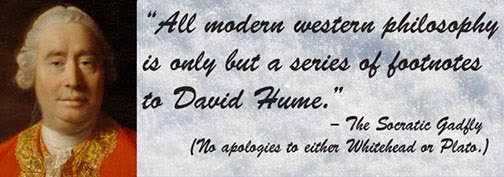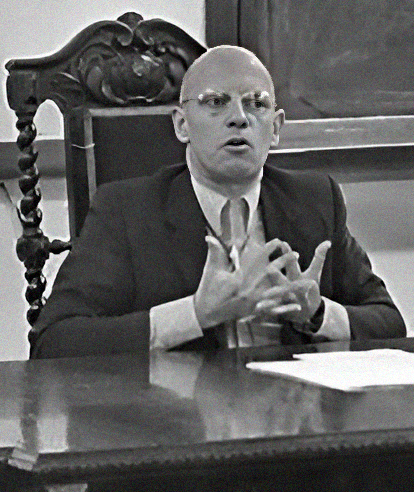And, fitting for methodologically naturalist science, it's on the winter solstice.
And, I appear to have indeed gotten it, as ragged as it is, on camera, handheld, as you can see at left. That would be Jupiter at left in the photo, and I believe Io above and Europa below.
And, per a blog post of several years ago on my primary blog, as far as modern explanation of the development of our Solar System, Laplace is the reason for the season. That's French astronomer Pierre-Simon Laplace, who articulated the "nebular hypothesis" more than 200 years ago.
For latest modern modelings on how the nebular Solar System developed, see this great Nautilus piece. Among other things, it explained why Jupiter and Saturn likely moved out, rather than in closer to the Sun, as they gained mass.
From here on out, I'm going to expand on what I wrote on my primary blog about this conjunction, to reflect further on the title of the post here.
Per two paragraphs above? As a secular humanist, I can appreciate the wonder and joy of astronomy without having to put either Christian or New Age veneers over it. I can also appreciate the wonder of reaching across 800 years of history. But also, unlike some of Laplace's older peers (Diderot, d'Holbach even more) I don't have to act like a Gnu Atheist, either.
After I did editing of pix and an initial wrap on the blog post (I already had the Nautilus and my old blog post in place yesterday) I started thinking about "miracles" of human ingenuity.
First, of course, is the cultural evolution in astronomical understanding that led Copernicus to re-invent the heliocentric theory and for it to gain acceptance. Then came the big step of Kepler's gathering of empirical evidence to establish elliptical orbits. Then, Galileo with Venerean phases giving empirical support for heliocentrism. And so forth.
On the personal side? The camera and lens I used to shoot that photo? Arguably better than ones I would have paid 10 times as much for 15 years ago.
And, per the verse from Proverbs? Not always, but often, with all our new knowing, has come new understanding as well.
And, now to the header in more detail.
I saw plenty of #ChristmasStar hashtags on Twitter. This ignores, of course, that it fell on the solstice, per good old Laplace. It also ignores that the ancient world had all sorts of winter festivals, that Christianity "pegged" Dec. 25 as Christmas' date because of a festival of Mithras and other things, such as the date that the Romans celebrated the winter solstice and emperor Aurelian setting the festival of Sol Invictus on that date. Also, fittingly, since Saturn is one of the two planets in the conjunction, and Saturnalia ran Dec. 17-23 on the old Julian calendar, that we could call it the #SaturnaliaStar just as much as the #ChristmasStar.
To this point, I'm primarily refuting fundamentalist and conservative evangelical Protestants, traditionalist Catholics, etc.
But, now we're going to speak to liberal members of suburban and urban congregations within ELCA Lutheranism, the United Methodist Church, etc.
Some of you were tweeting #ChristmasStar, too, of that I have no doubt.
Well, let's look at Matthew's story, specifically 2:1-2, 9:
After Jesus was born in Bethlehem in Judea, during the time of King Herod, Magi from the east came to Jerusalem and asked, “Where is the one who has been born king of the Jews? We saw his star when it rose and have come to worship him.” …
After they had heard the king, they went on their way, and the star they had seen when it rose went ahead of them until it stopped over the place where the child was.
A few notes.
The opening would seem to indicate a traditional star (including the "planetoi," as known in Greek), interpreted in the light of Zoroastrian / Babylonian astrology.
But, ordinary stars don't stop. Planets do. Venus and Mercury, being inside Earth's orbit, cannot stop overhead, though. So, that would leave Mars, Jupiter and Saturn.
But, would that really be enough for Magi to say "This is it!"? After all, Mars in opposition and standstill is stopped relative to every place on Earth. Ditto for something like a Great Conjunction, excepting nearness to the horizon affecting visibility, of course. (Update: Mars and Venus have their own "great conjunction" on July 12. And, although Venus cannot be directly overhead, arguably, because of its moving, it could kind of fulfill the Magi's alleged perception. Plus, Venus is brighter than Jupiter and Mars is brighter than Saturn. OTOH, Venus-Mars conjunctions happen much more often than Jupiter-Saturn ones. As in, every 2.1 years on average, 10 times more frequently than Jupiter-Saturn, meaning that it would be no big deal, even a really close conjunction.)
So, we are presumed to be invited to see this as a miracle. Just like Joshua making the sun stand still.
Well, if you're a non-literalist Christian, that leaves you with only two logical alternatives.
Either you accept that there was a literal miracle, or you accept that Matthew, writing some sort of pesher on various passages from the Tanakh, went way overboard on trying to sell this as a literal miracle.
Because, just like Joshua making the sun stand still, and contra the bogus story that there's a computer that traces planetary and solar moves back 3,100 or whatever years until it hits a glitch, there is, per people from David Hume to Carl Sagan, NO EVIDENCE for such a thing. That doesn't even take into account the psychological factor that there were world civilizations 3,100 years ago that would have reported a 28-hour day or whatever.
And, an ordinary planetary opposition, or a close conjunction even with an opposition, would not have been eye-catching like this, quite literally.
So, non-literalist Christians about Moses or whatever? You're invited to extend your non-literalism further.











